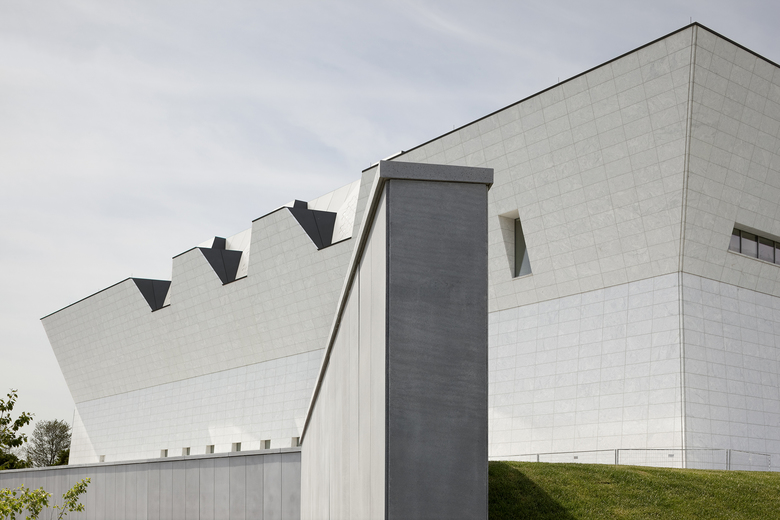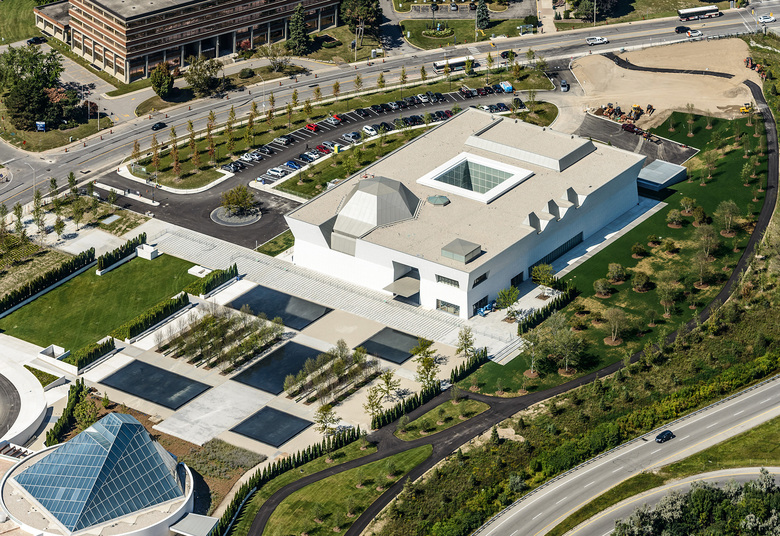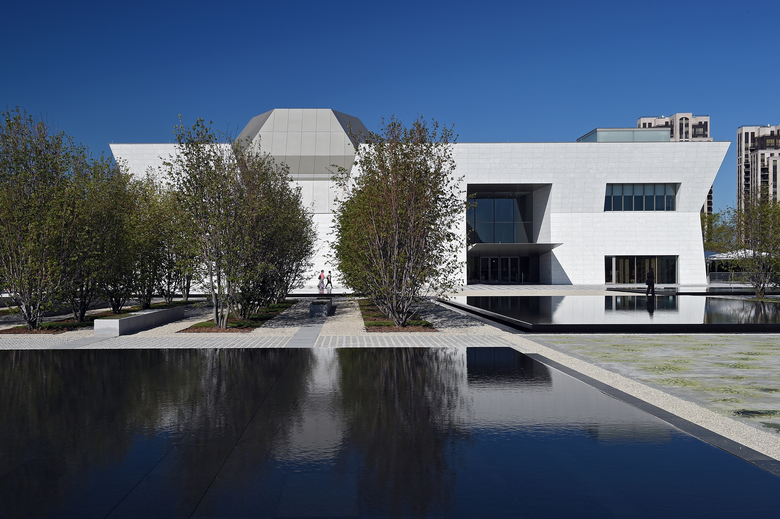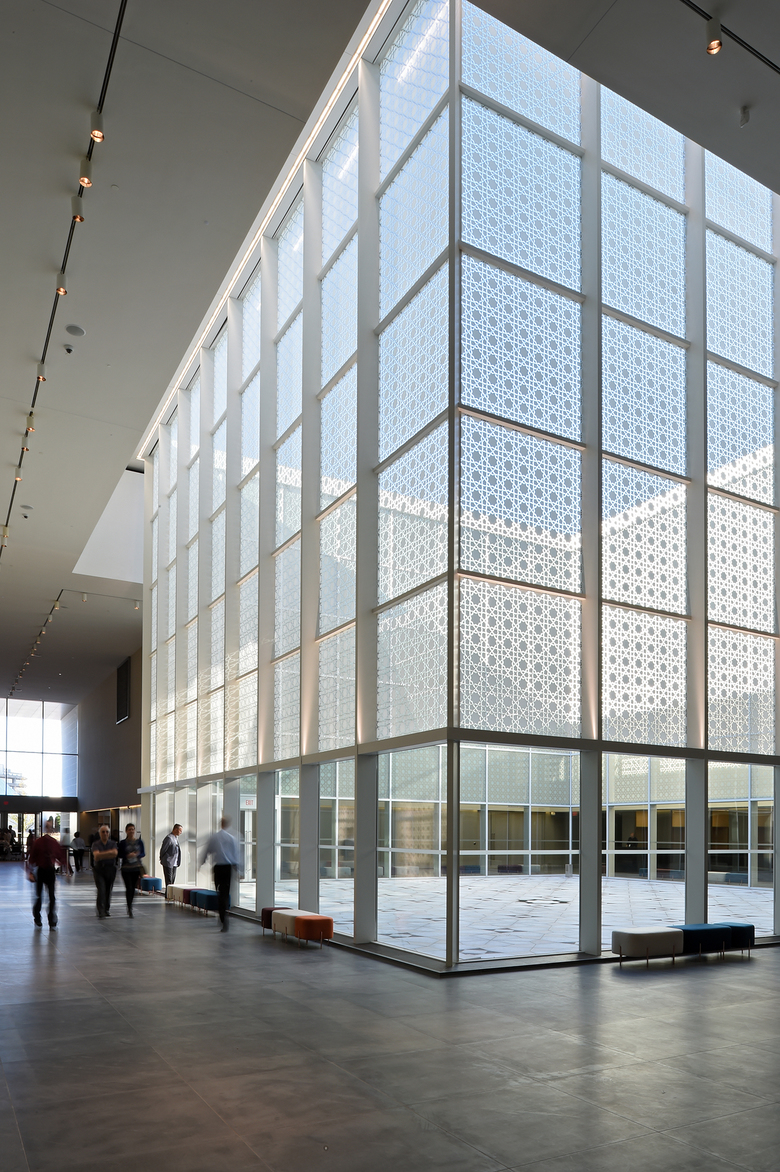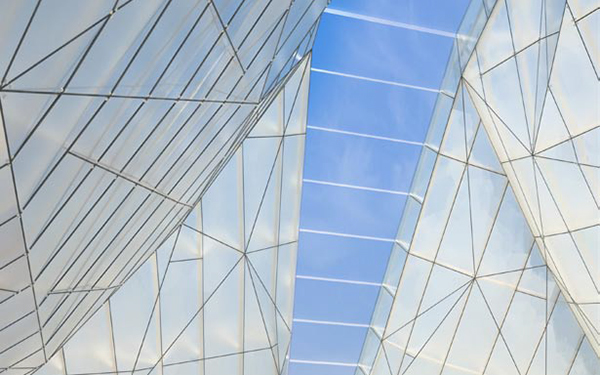Aga Khan Museum and Ismaili Centre Open
Toronto is graced with two new cultural buildings designed by renowned architects: the Ismaili Centre, by India's Charles Correa and the Aga Khan Museum, by Japanese architect Fumihiko Maki.
Twelve years in the making, the two buildings comprise a cultural complex that shares a landscaped plaza with reflecting pools and rows of trees. The pair is located next to an expressway about a 15-minute drive northeast of Toronto's downtown, in an area that Correa describes to the Toronto Star as "a very formless part of the city." The crystalline form of Correa's Ismaili Centre and the flared walls of Maki's Aga Khan Museum are sure to be hard-to-miss structures in the suburban environment.
The Ismaili Centre, billed as a place that serves "to reflect, illustrate and represent [a] community’s intellectual and spiritual understanding of Islam," is the second such Centre in Canada, following the first one built in Burnaby, British Columbia, in 1985; four other Centres exist in Europe and Asia, with three more in planning for Europe and North America. The Toronto building includes a place of prayer (Jamatkhana) as well as spaces for institutional, social, educational and cultural activities.
The Aga Khan Museum, on the other hand, is a one-of-a-kind institution, home base for more than 1,000 objects from the Aga Khan Trust for Culture's permanent collection. These objects – ranging from portraits, textiles, and miniatures to manuscripts, medical texts, and musical instruments – previously toured to museums like the Louvre and the Hermitage. The Museum describes itself as being "dedicated to presenting an overview of the artistic, intellectual, and scientific contributions that Muslim civilizations have made to world heritage."
Maki's building is organized around a central courtyard, inspired by His Highness the Aga Khan's suggestion that "the Museum be designed around the concept of light." Islamic patterns can be found in parts of the Museum, such as on the floor of the courtyard and in the mashrabiya patterns etched into the double-glass walls that filter sunlight entering the building's interior.
Opening ceremonies for the Ismaili Centre took place September 12, while the Aga Khan Museum opens to the public on September 18.
